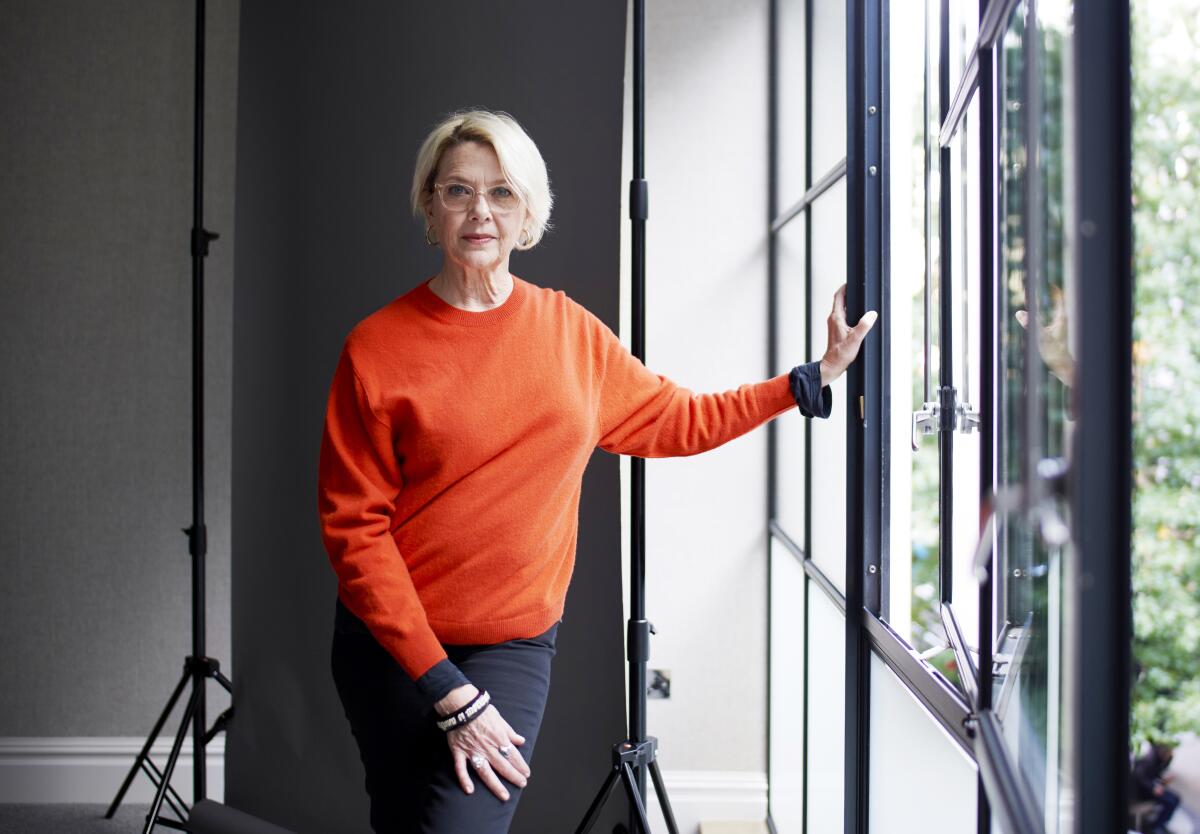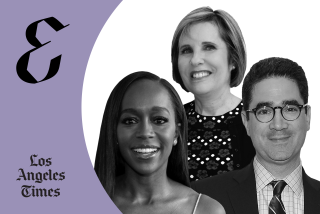Why Annette Bening didn’t meet with Dianne Feinstein before playing her in ‘The Report’

LONDON — Annette Bening remembers the first time she encountered Dianne Feinstein, now a U.S. senator in California. The actress had moved to San Francisco for college in the fall of 1978, and a few months later Dan White shot and killed San Francisco Mayor George Moscone and Supervisor Harvey Milk.
“It was a huge event in the city, very traumatic,” Bening says, sitting in London’s Ham-Yard Hotel during the BFI London Film Festival, where two of her films were screening, “The Report” and “Hope Gap.” “There was this iconic moment where Dianne Feinstein came out on the steps of City Hall and announced what happened. And she became mayor. I’ve just been aware of her really closely since then.”
Nearly 40 years later, Bening is embodying Feinstein in the new release “The Report,” a political thriller from writer-director Scott Z. Burns that follows the United States Senate Select Committee on Intelligence’s investigation into the CIA’s use of torture on suspected terrorists after the Sept. 11 attacks. Adam Driver stars alongside Bening as Daniel Jones, Feinstein’s real-life staffer who doggedly pursued the truth for years, eventually writing a 6,000-plus-page report that still has never been released in full.
Bening liked the clarity of the script, which carefully lays out the obstacles and events that led to a heavily redacted 525-page summary of the report being released by Congress in 2014. She also liked its relevance, which has become even more amped up by the recent news involving whistleblowers, President Trump and Ukraine.
“In some ways I think people feel a little bit reassured by it because the system of checks and balances, in this case, to some degree, worked,” Bening reflects. “It’s very timely. It’s also an example of a person, Dan Jones, pursuing the truth. You see how it’s not just the laws — it’s the force of character of individuals who are willing to take the heat. And maybe that’s what’s happening now in our country.”
To prepare for the film, which shot last winter in New York, Bening read the report’s summary, which she calls “very disturbing.” She watched hours of footage of Sen. Feinstein but didn’t ask to speak with her ahead of production (they have met in the past). She felt it was important to portray a realistic version of the senator and didn’t want that to be tainted by an interaction.
“We’re not here to make heroes of anybody,” Bening says. “We’re here to tell the truth. It was important to all of us. That feels very good to be able to say — we all wanted to get out of the way as much as possible and tell the story of what happened in this recent event. I wanted to do enough where you would believe it was her. Just enough where you’re focusing on the story and not on anything else.”
Jones was present on set to answer any questions. “He was very helpful to me about the senator, because I really wanted to try to get it right,” Bening notes. “I could ask him, ‘What happened when you did this and how did she respond?’ Dan was very helpful to me about what she did and said, and how she conducted herself.”
Bening refers to herself as a political junkie, admitting she’s “obsessed with the news.” On her way to this interview she got caught up reading about how there are now multiple whistleblowers in the Ukraine case, and she’d seemingly rather talk about Brexit than her career. She sees “The Report” as having the potential to both inform and to raise important conversations, and feels that it does that without being didactic or dry. The scenes of torture and waterboarding, which are reenacted as flashbacks throughout the film, are particularly hard-hitting.
“Political movies are only effective if they get you in your gut,” she says. “That’s the only way to deliver information effectively, so it has to be a narrative that in some way hooks you in on an emotional level. That’s why they’re hard to do.”
Bening, who is currently in London filming Kenneth Branagh’s “Death on the Nile,” shot “Hope Gap” shortly after “The Report.” The intimate, quietly heartbreaking film, expected out in the U.S. next spring, is almost the extreme opposite of “The Report,” starring Bening as a British woman surprised by a divorce from her husband (Bill Nighy) late in life. The actress loved the opportunity to play a complicated woman whose reactions to the events at hand are messy and realistic.
It may be a far different story, but for Bening there’s a correlation between playing an older woman grappling with divorce and an American politician held to different standards than her male counterparts.
“We’re now at a point where we can tell stories where women aren’t stereotypical, like they always were for so long,” Bening says. “Maybe they have flaws. Maybe they have nuance. There are more stories out there that defy the stereotypes of women of all ages. It’s exciting.”
More to Read
Only good movies
Get the Indie Focus newsletter, Mark Olsen's weekly guide to the world of cinema.
You may occasionally receive promotional content from the Los Angeles Times.










